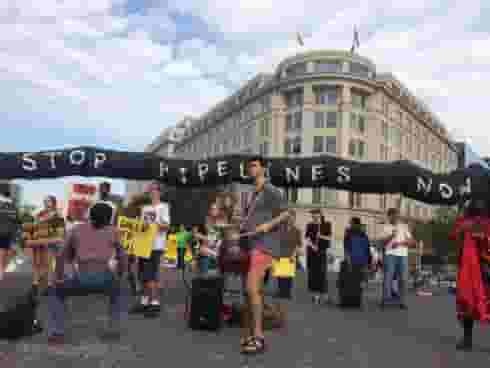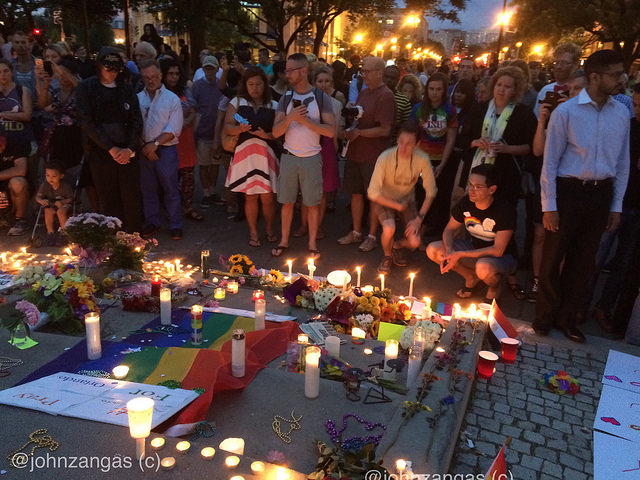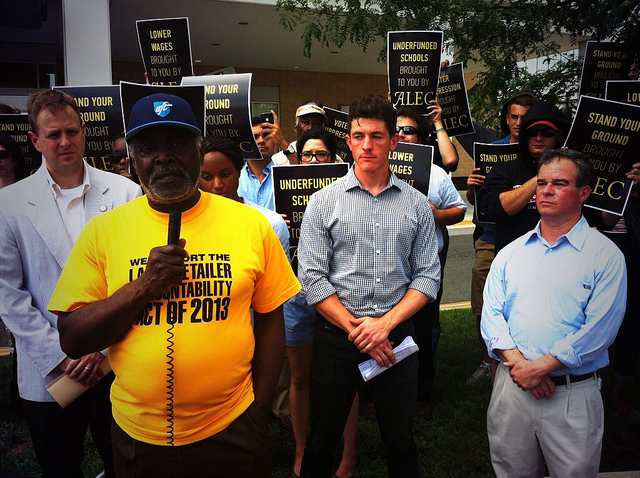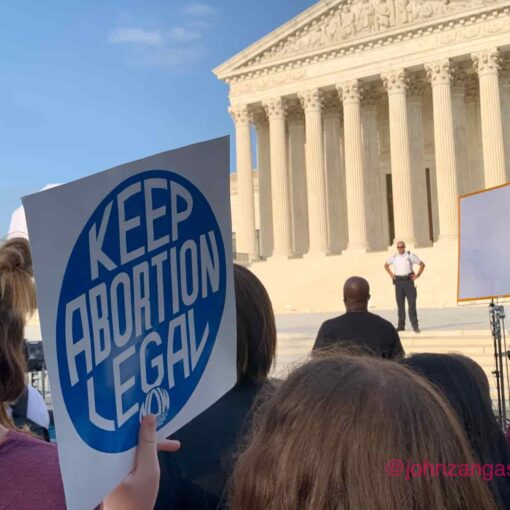Washington, DC — Over two dozen environmental and justice groups coordinated a massive shutdown of twenty major locations in the District, snarling traffic and business operations and creating chaos for commuters as they brought the nation’s capital to near gridlock. The unprecedented action involved a series of coordinated nonviolent civil disobedience actions which included blockades of key freeway ramps, a yacht launch on K Street, a van blockade and multiple demonstrations with sit-ins on city streets.
[youtube https://www.youtube.com/watch?v=NlqlMfhmsII]
The actions come in response to worsening global climate and government inaction or business initiatives to tackle or even acknowledge the existence of global heating and its fallout. A key issue prompting the shutdown was corporate policies of business-as-usual and failure to implement even bare-minimum renewable energy solutions.
Youth-led groups included the Sunrise Movement, Extinction Rebellion, 198 Methods, and 350 DC. Other groups included Beyond Extreme Energy, Black Lives Matter DMV, Chesapeake Climate Action Network, Code Pink, and Friends of the Earth Action, Friends Meeting in Washington Social Concerns Committee. Friends Meeting House of Washington, DC provided critical space support for the activists.
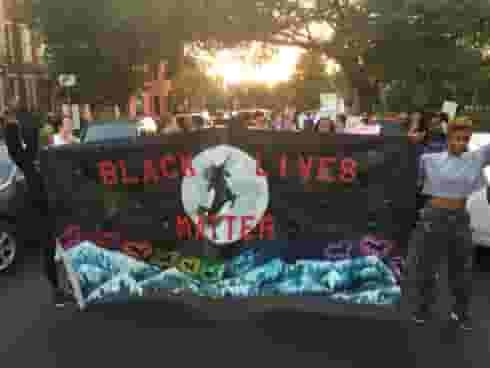 The shutdown had been planned for several months and involved as many as 2,000 activists from a variety of groups which have traditionally not coordinated actions on such a large scale. The success of the shutdown demonstrated that groups have found new confidence that they can cooperate in a large scale actions and demonstrate to authorities they are no longer going to accept business-as-usual as the climate crisis worsens.
The shutdown had been planned for several months and involved as many as 2,000 activists from a variety of groups which have traditionally not coordinated actions on such a large scale. The success of the shutdown demonstrated that groups have found new confidence that they can cooperate in a large scale actions and demonstrate to authorities they are no longer going to accept business-as-usual as the climate crisis worsens.
This action was different from protest actions of the past when thousands marched along permitted prearranged routes, holding signs and delivering keynote speeches. The actions of the past generally led to inaction from government and business comfortable with maintaining the status quo of a fossil fuel-based economy.
These actions represent a new direction of ramped-up pressure against the administration and its cabinet of climate denier industrialists and the fossil industry businesses enthrall to them.
In this action, many groups consolidated their efforts to respond as if they were one group with one voice and a wide power base. The groups realized over the last few years that they must include social justice issues at the center in the climate movement, because they are the core issues often overlooked by environmentalists in their fight against the fossil fuel industry.
Among social justice groups spearheading the actions was Black Lives Matter DM–a collective of activists fighting for minority social justice in Washington, DC–which organized a shutdown of a key intersection near the U.S. Capitol by setting up a mock medical aid station.
“Black people in frontline communities are always most impacted by climate change, by climate disaster, but are often the last that people think about,” said April Goggans, a lead organizer of Black Lives Matter DMV. “We are highlighting environmental racism in DC to remind folks we cannot be erased. You cannot talk about saving the Earth for future generations if you cannot talk about those who have been suffering the longest,” she said.
Goggans pointed out that those frontline communities of color in the Bahamas, New Orleans, Puerto Rico and the Philippines which were recently hit by massive hurricanes still have not and may never recover. “It is a social justice issue, because housing is a climate issue,” she said.
A group of about 60 students aged 19 to 22 from five universities, shut down a key access to the I-295 tunnel and interchange at New York Ave., where 27 people were arrested. They were released within hours on post and forfeit bonds after being charged with obstructing an access road.
Jeremy Liskar, a student from George Washington University, who was arrested but later released, said that his generation is in a fight for their future and willing to do what they need to do to change the fossil fuel-based economy. “It’s not like this is something we want to do, skipping school to get arrested, but we feel it’s a moral imperative,” said Liskar
Liskar said that if he were speaking to the Congress he would tell them: “We are on a timeline. We can’t be debating whether this is happening because it is happening. We need to start talking about how we’re going to fix it,” he said.

